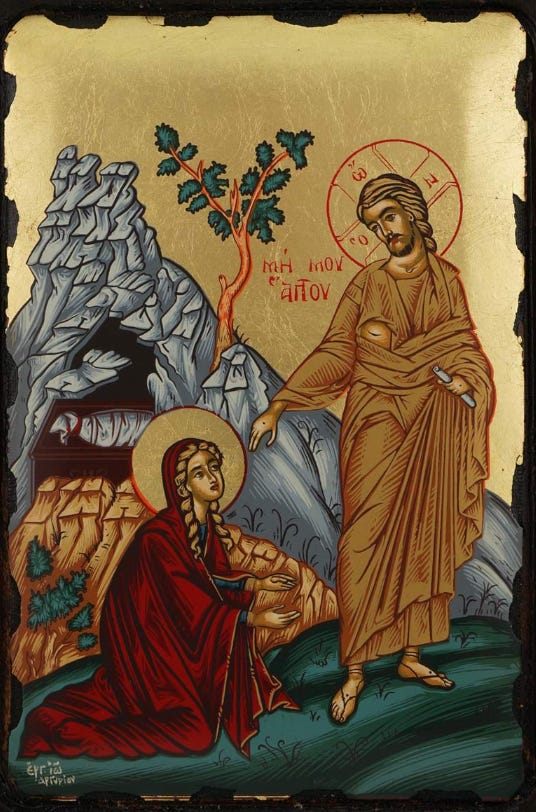Christ Appears in Locked Rooms
a post-script homily
*
On May 16th 2004, Rowan Williams, then the Archbishop of Canterbury, gave a sermon on the tenth anniversary of the ordination of women in the Church of England. He took as his text John 20:18, which reports that Mary Magdalene had been sent to the disciples with the news of Jesus’ resurrection, and he delivered the sermon entirely in her voice, constru…
Keep reading with a 7-day free trial
Subscribe to Speakeasy Theology to keep reading this post and get 7 days of free access to the full post archives.


